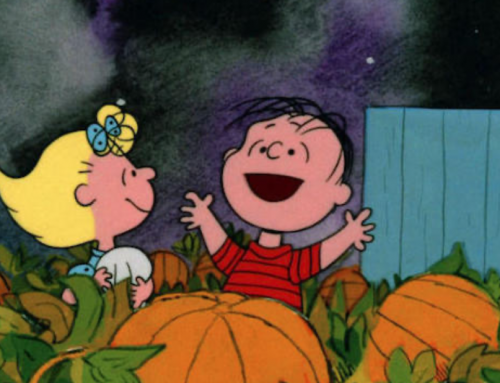Looking up, I noticed small buds on a tree about to pop with white blossoms in the middle of February, and a squirrel scritch-scratched his way along a still-bare branch. It glanced at me as if to say ‘so you’re here, too, enjoying this taste of spring.’ As I flipped open the laptop, I heard a grunting noise that grew louder and faster. Across the way was a twenty-something-year-old woman standing her ground with hands on hips, and to her right, near a tall, thick tree, was a slender and balding man in jeans and a sweatshirt. The panicked, grunting sound was coming from him.
She spoke to him in a manner that was familiar to me; the prosody and straightforwardness of an aide, a behavior tech…someone trained to support and coach an individual with special needs. Like songs we know in just two notes, the woman’s intonation and word choice were instantly recognizable.
With a sudden burst of physical movement, the man began stomping his feet and flailing his arms. His lanky body squirmed, and his hands reached up and swatted his own head. He grabbed one of the two lunch totes the woman had placed on the table and shook it violently. Containers of food and napkins exploded from it and scattered onto the grass. He was increasingly agitated, and I guessed from my own experiences that this man was having a sensory meltdown.
Competently, the woman urged him to pick up the containers with her. Back in the pack they went, one by one. The grunting continued, and I could hear her say, “What is it, Tommy? What do you want?” I scanned for a communication device but did not see one. He grunted and pulled his sleeves and hit his face.
This went on for minutes. The woman stood about ten feet from him, patiently waiting. She kept encouraging him to sit at the picnic table. He wouldn’t.
“We’re either going to sit at the table and eat, or we need to leave.” Her command was delivered with neutrality and impact. Tommy pulled on his sleeves and yelped in distress. He’s trying to communicate, I thought.

Photo by Deneen LT from Pexels
“Do you want to take off your sweatshirt?” He grunted in an affirmative manner. She hit the bullseye. “OK, let’s take off that sweatshirt then.” With her help, he shimmied out of the garment and yanked his t-shirt over his jeans. His arms then hung calmly at his sides. The grunting subsided. She re-gathered her hair into a messy bun and tightened the flannel shirt tied around her waist.
As she began setting up the food for Tommy and herself, I rose from my table, walked slowly toward them, and said “Hi.” I’m not sure what prompted me to do that, other than the spontaneous thought that people working with special needs individuals in any capacity need to be recognized and complimented. It is tough work.
“Hi…”
She turned quickly and yelled out, “We don’t need any help. We’re fine!”
Shocked, I halted. Respecting her position but slightly put off by her abruptness, I calmly said, “I just wanted to say hi. I… um, I have a son with special needs.”
“I work with him,” she said, and turned away. She had every reason to take me for some stranger trying to intervene inappropriately. It probably happened to her a lot. People assuming she couldn’t handle it or needed assistance. That wasn’t my assumption at all. I wanted to show some support…give her some kind of acknowledgement. And if a conversation blossomed, all the better.
I stood there for a second staring at the grass. “I can tell you do a great job with him,” I said without moving closer, and smiled. Tommy was now scarfing his food and wiping his face. Anyone who calmly and effectively handles a six-foot tall man in a sensory meltdown in the middle of a park fits my definition of impressive. She nodded.
Gut instinct quickly told me no conversation was going to happen here. I completely understood that she was working in a focused manner with her client; this was her workspace, and I needed to leave them be.
I turned to walk back to my picnic table. “Well, thank you,” she called out, and immediately got back to work by following him to the trash can and directing his steps away from a metal grate near the sidewalk.
Through my sunglasses, I watched Tommy and his aide walk back and forth to the trash can five times, each time with Tommy depositing a napkin in it. And each time the woman prevented him from stepping on the grate. I couldn’t help but smile a bit.
How many times at our kitchen table have I observed Zach do the same thing? A soiled napkin taken to the trash bin…and another…and another. Some may see senselessness in this, and sometimes I wish Zach didn’t get up from the table so often. But perhaps with Adrian Monk-like fastidiousness, a dirty, crumpled napkin next to a plate of food throws the whole picture off. The tidiness of an unused napkin brings order and comfort with its square edges and consistent texture.
Tommy and she ate quietly and quickly, and they cleaned the table rapidly. I know how that goes, too. When something’s done, it’s done. As they gathered their stuff, including the discarded sweatshirt, a man, a woman, and their dog entered the park. Tommy began bouncing and emitting grunts, and I watched as the man pulled the dog’s leash, made a U-turn, and left. It saddened me.
Tommy carried the lunch totes to the trunk of the car, at his aide’s urging, and I again heard directives…be gentle; close it; watch out for that car; step over here; turn around; get in the back seat. Tommy seemed to require almost constant direction for every move. I felt fortunate that through the years we’ve been able to step back from an almost constant litany of directives throughout the day. Sometimes I still have to remind myself to just shut up and let Zach figure things out for himself.
Before the car pulled away, the woman sat in the driver’s seat for several minutes. I could see her profile. I speculated that she was perhaps waiting for Tommy to buckle. Or she was checking her phone in a brief moment where her attention could part from her client who was secure in the back seat. Maybe she was composing herself: taking some deep breaths, steadying herself for the next half hour, gearing up for whatever challenge she and Tommy were likely to face before quitting time.
She may have been gruff, but I respected her. She knew what she was doing, and she did not seem flustered in any way by her client’s meltdown. Perhaps a touch of gruffness helps her with the work she has chosen. In my perspective, no one chooses working with individuals with complex care needs because it’s an easy gig. (Well, correction: I did meet a long-term substitute teacher for Zach’s class who told me just that; he said he liked being able to come to work, put his feet up on the desk, and read the paper.).
A thought entered my mind as the white car drove off. She and I had something very important in common. We provided care, guidance, and unconditional support for a differently-abled person. True. But that wasn’t it. We handled meltdowns in public places with fortitude and composure. But that wasn’t it either. A messy bun? Yeah, for sure. But that wasn’t it.

©KeriMeHome
I thought about Tommy as a man several years older than Zach, who may not have ever had a way to effectively communicate. I thought about Zach as a young adult who relies on a device to “talk” and is learning to spell and type. I thought about all the people like them, so limited in verbal ability, who live in this noisy, buzzing, chaotic world of phones and chatter and breaking news and 5G internet, who are often pushed to the side or outright avoided because they are different. Navigating this world isn’t easy under most circumstances, and for people like Tommy and Zach?? What do they do? How do they manage?
They trust us.
They trust us. We share that honor. We have their trust and we hold the faith they put in us to see them through. To understand when something like a sweatshirt on a warm day is too much to bear. To anticipate the obstacles in their way and clear the path. To be by their side when we can’t (or shouldn’t) clear that path. To offer unconditional love especially when they see others make a U-turn. To get them through challenges with their dignity in tact.
To be trusted with precious things is a gift of great value.
I heard some rustling above my head and looked up to notice a blue jay on a branch. Next to the bird was a tiny white blossom that opened up. Soon, with patient nourishment from nature and the sustenance of every branch, the tree would be in full, spectacular bloom.

pexels.com








Keri this is brilliant and touching and the absolute truth, written with clarity and so much more! I loved reading it , feeling as if I were right there. WOW!!!!
Thank you so much for your beautiful and kind words. 💜💙💜💙💜💙
Can I leave a hundred heart emojis? That wouldn’t be enough..:
Beautiful, dear Keri! I think of you all so often and am so thankful that Zach has you as his Angel mother! So much love and wisdom!
Thank you, Judith. Love to you!
I love this Keri. Somehow I wish she could have connected just a bit more, but as you know there could have been a myriad of things going on beneath the surface. Thank you for sharing, and hugs to you and Zach 😘
Thank you, Aven! So good to hear from you.
Beautiful piece Keri!!! Your thoughts on “How do they manage?” was just what I needed to hear right now during this challenging time with my oldest…
I completely understand!! Hugs to you. Thank you for leaving a comment! <3